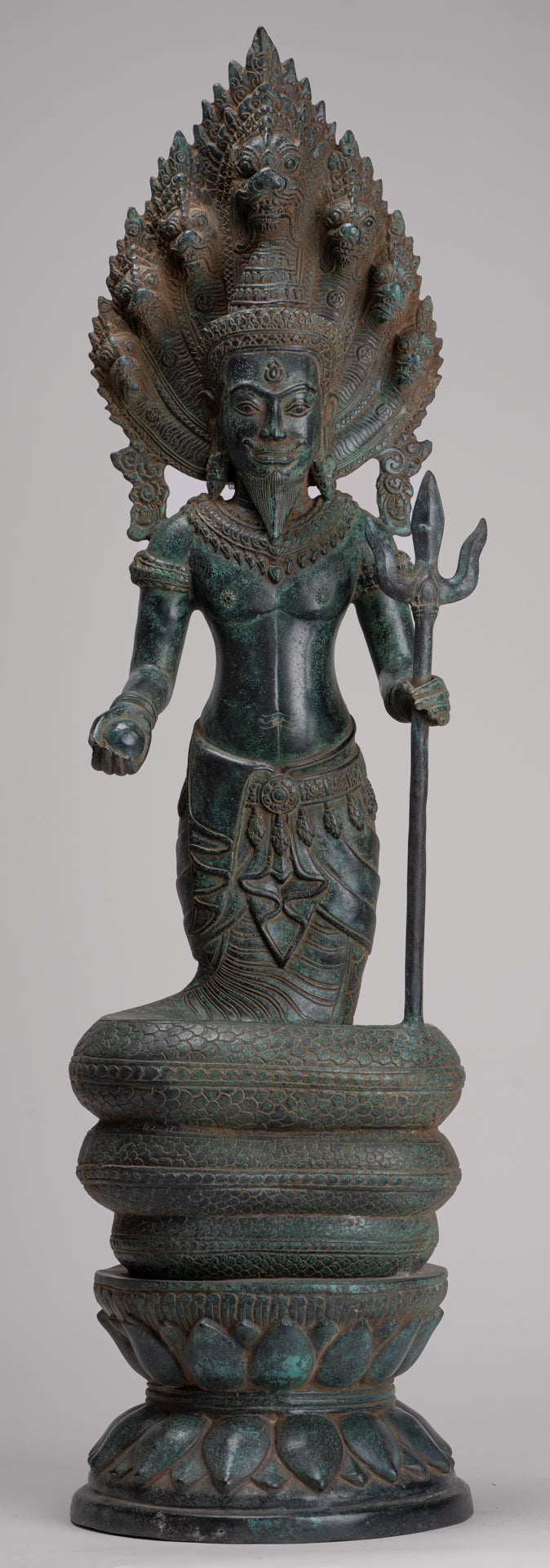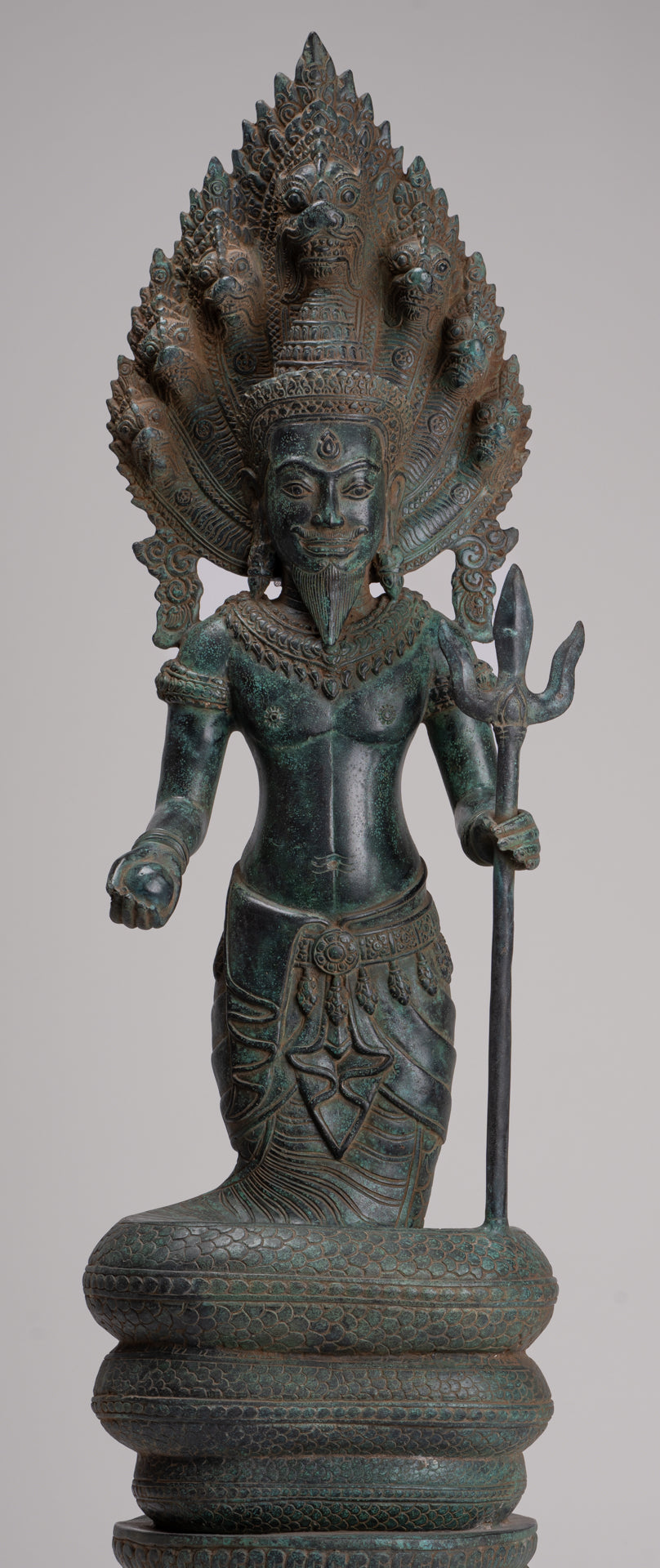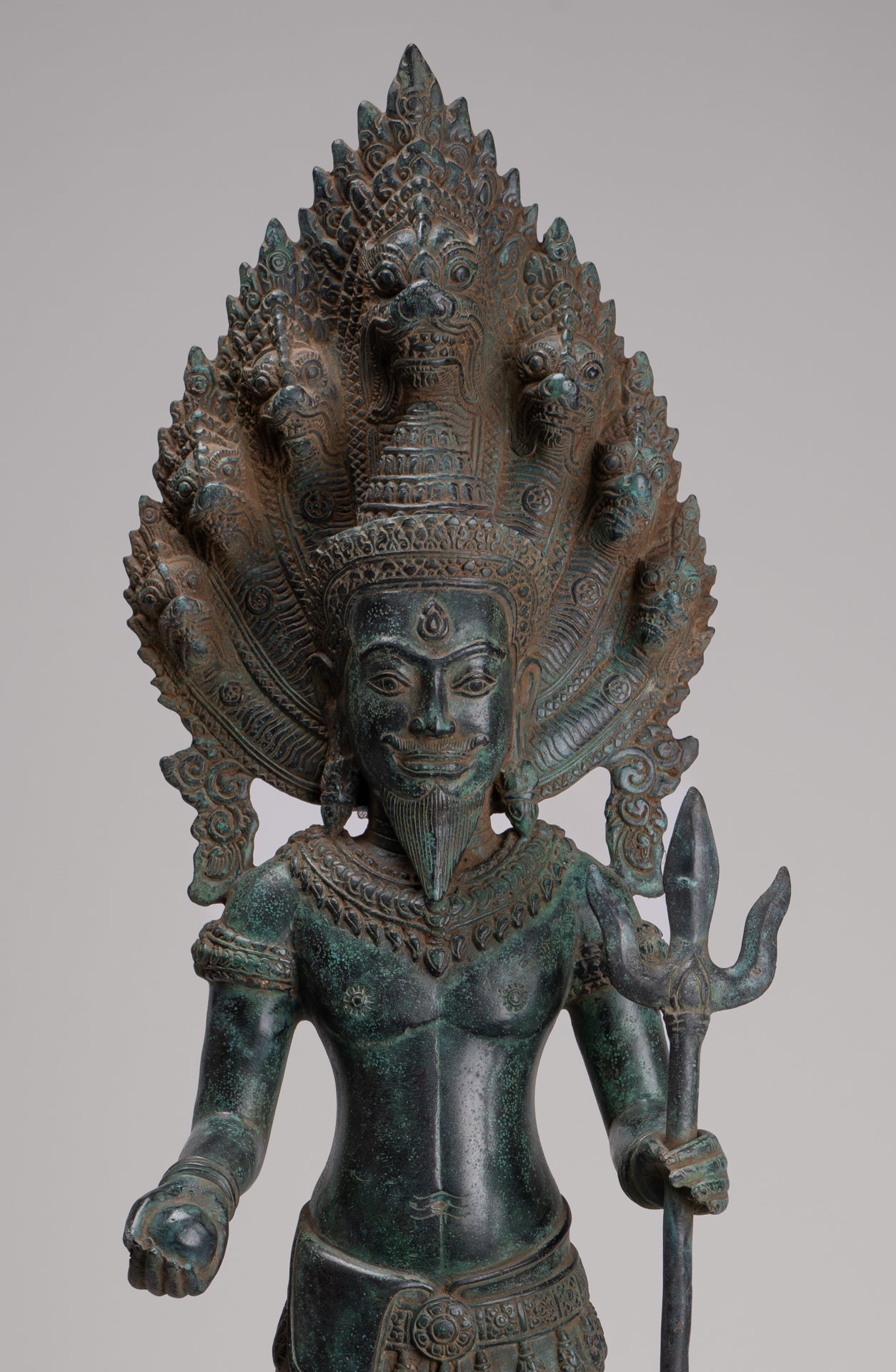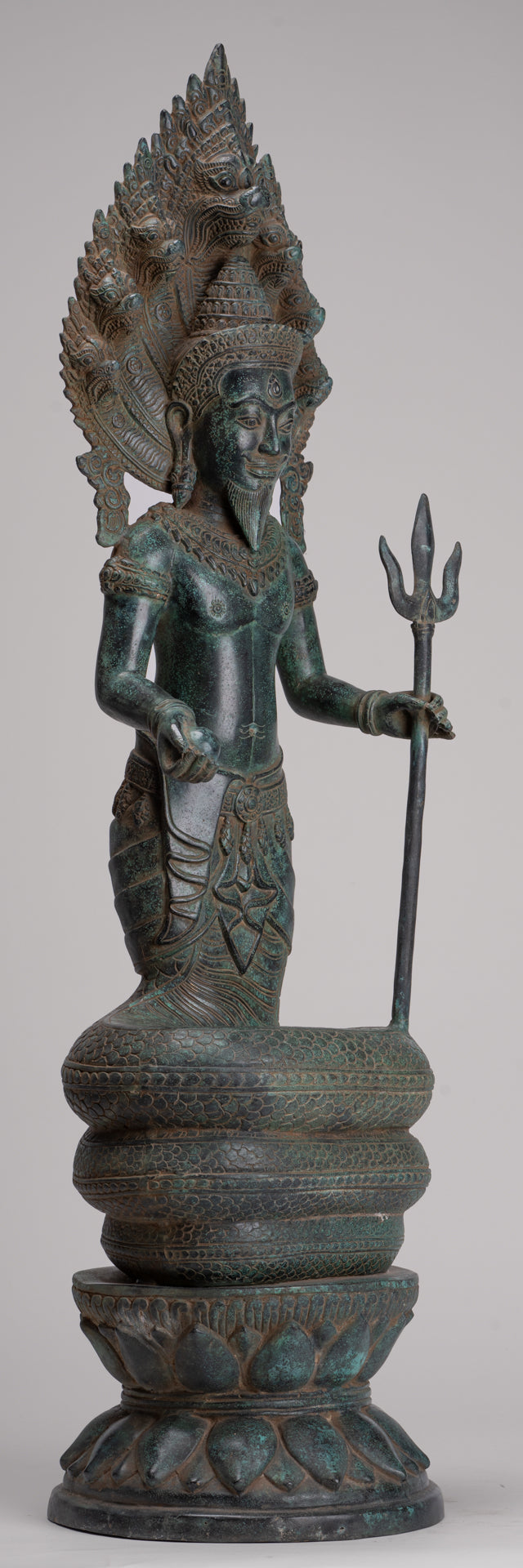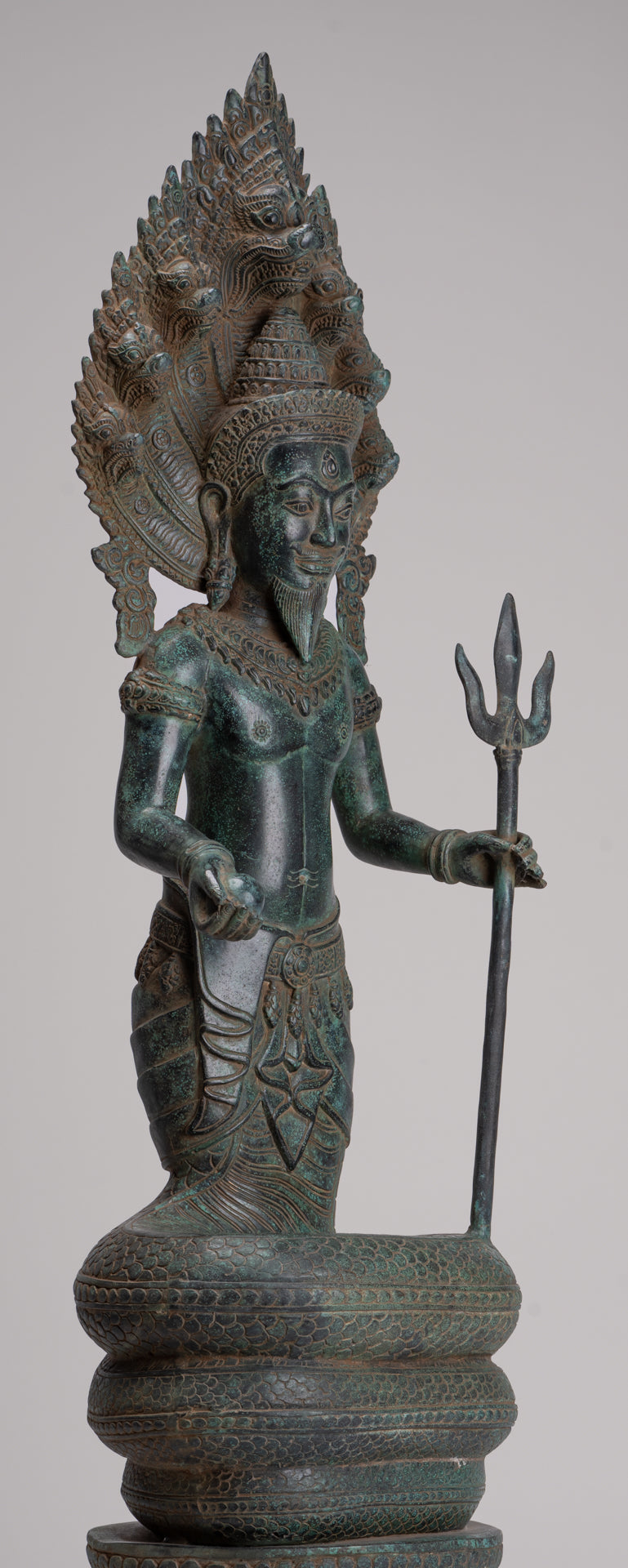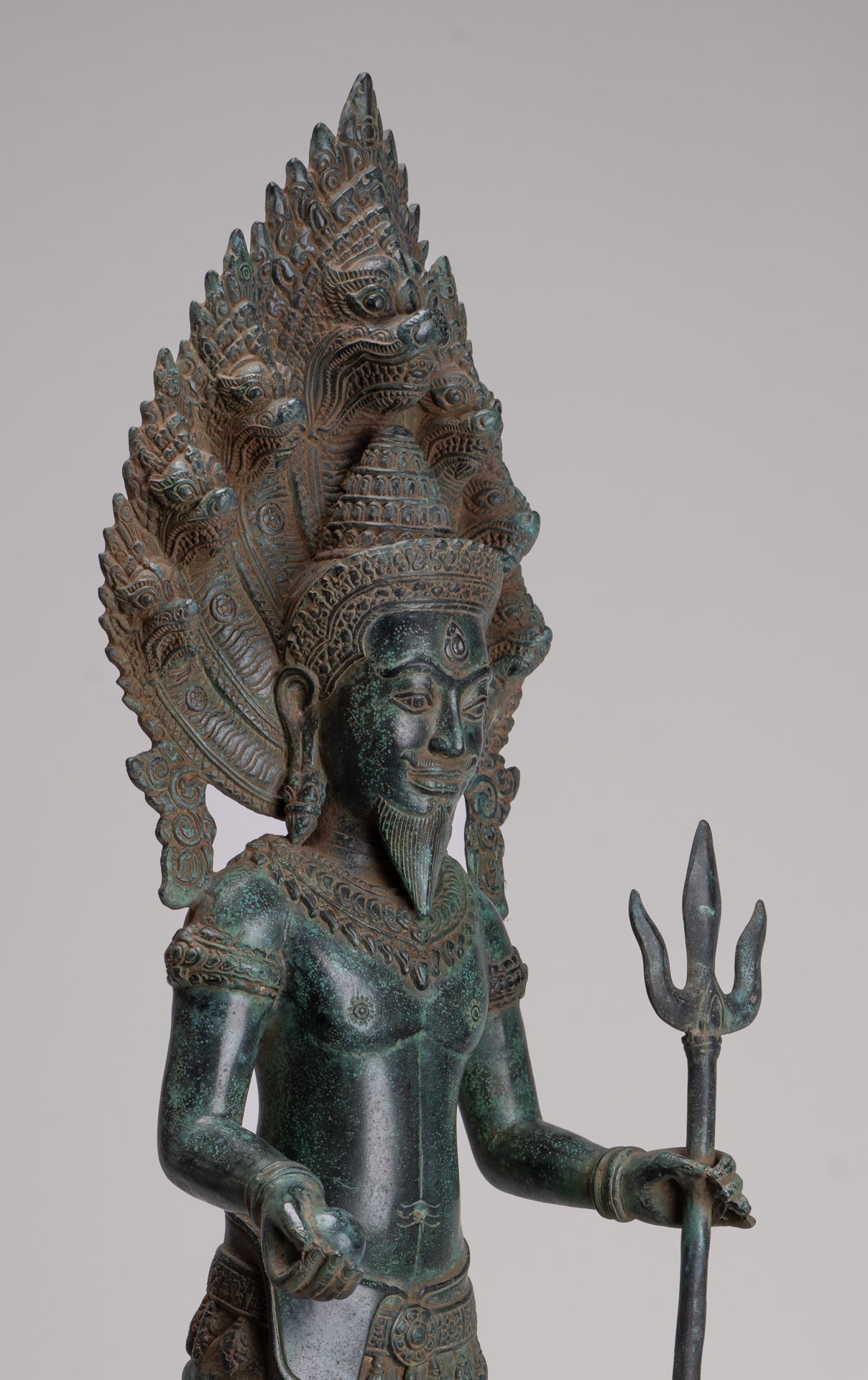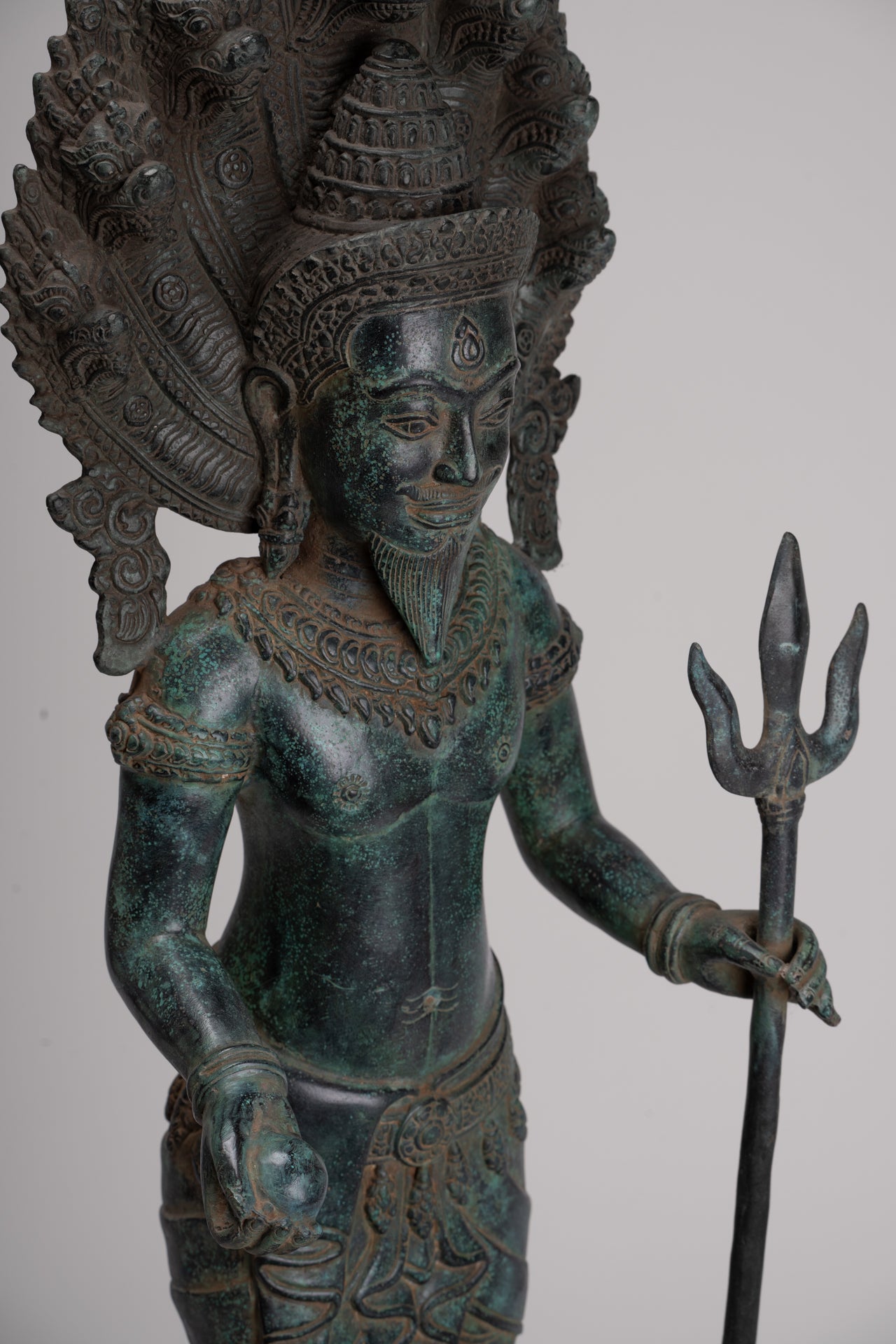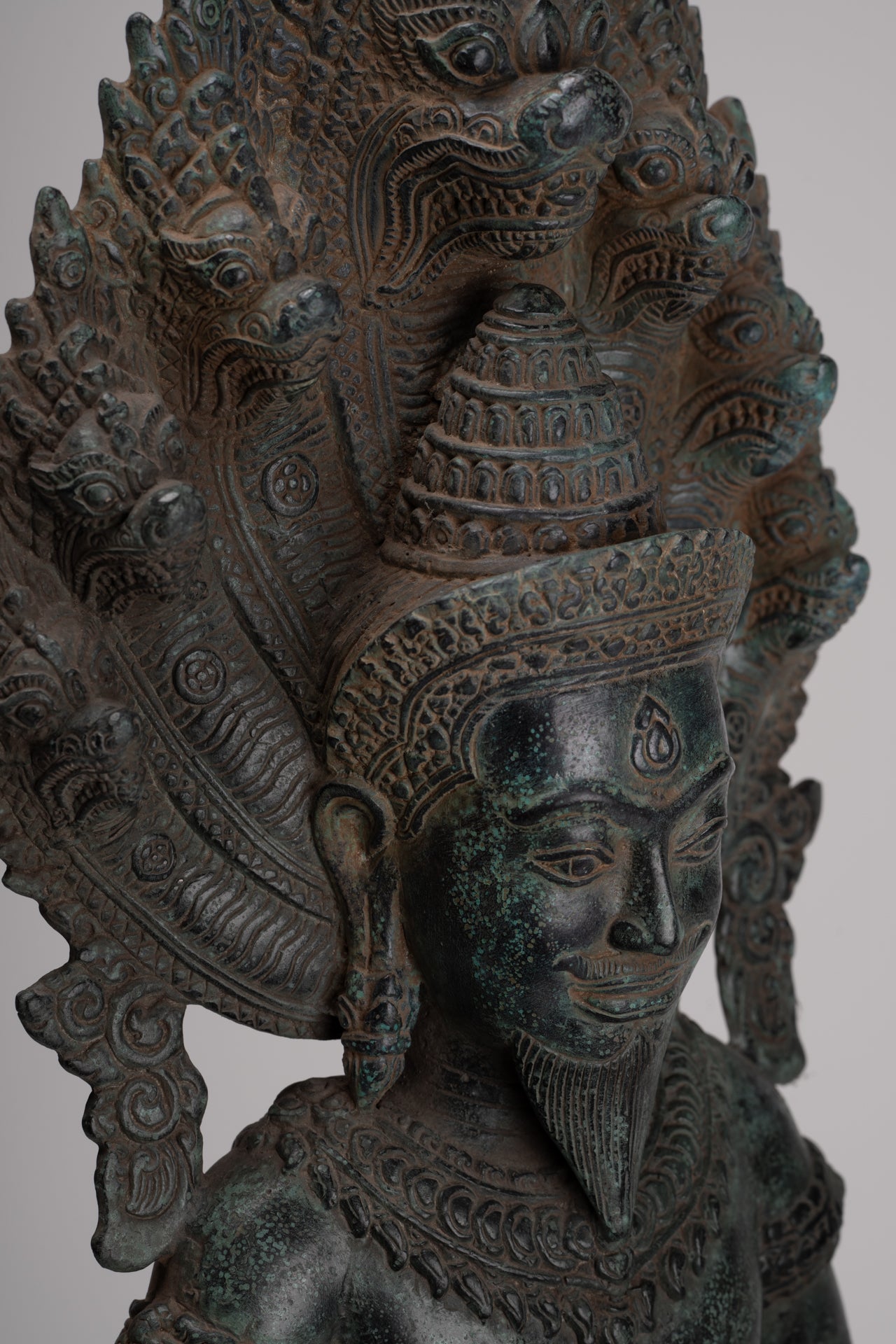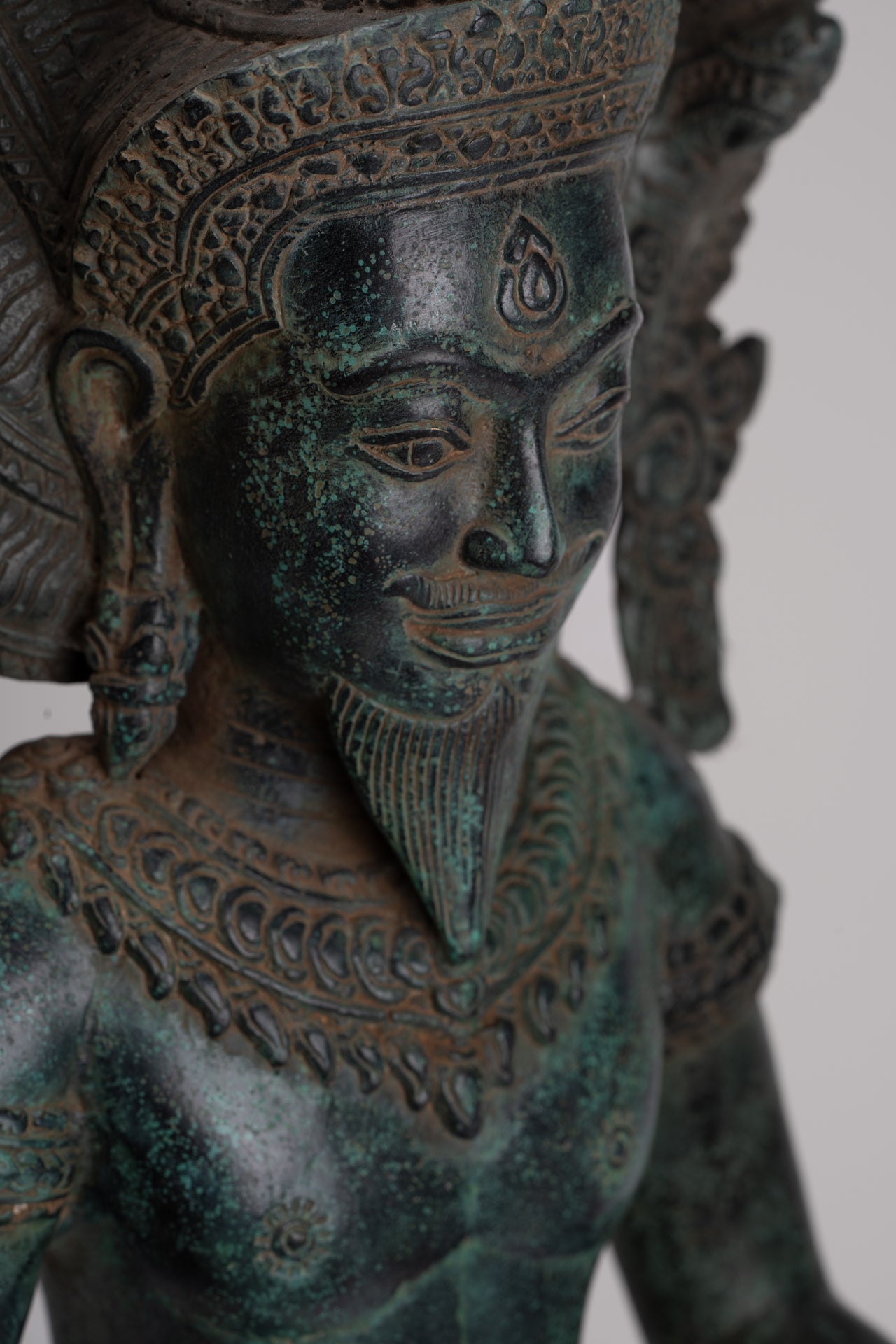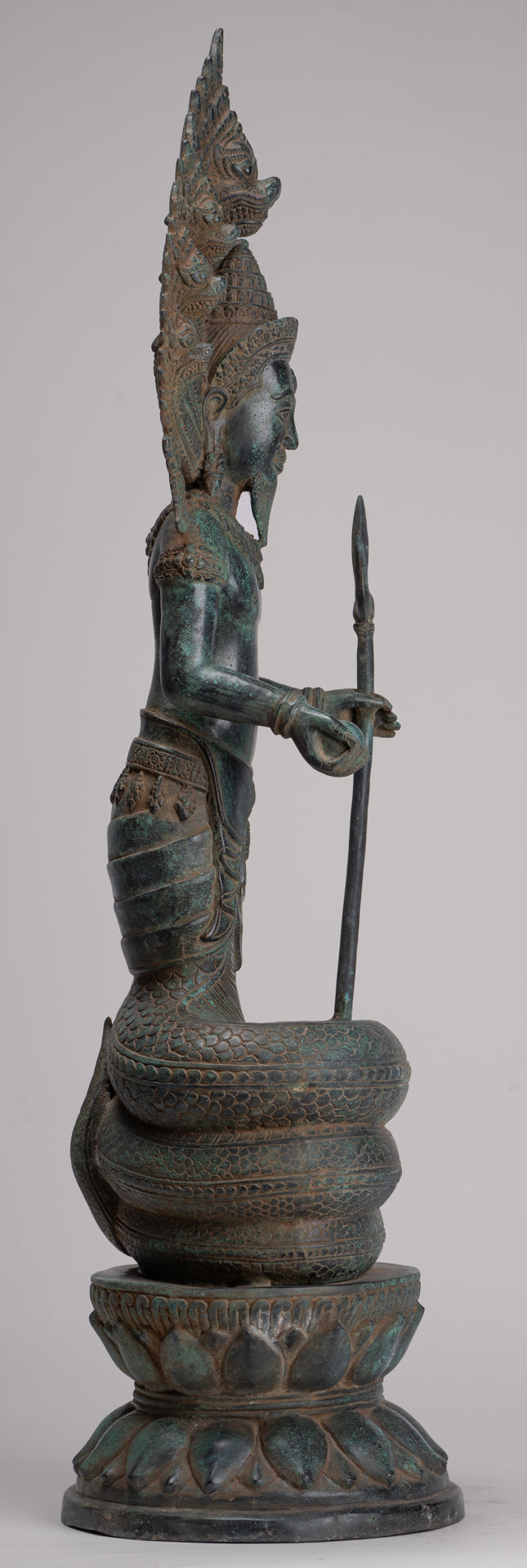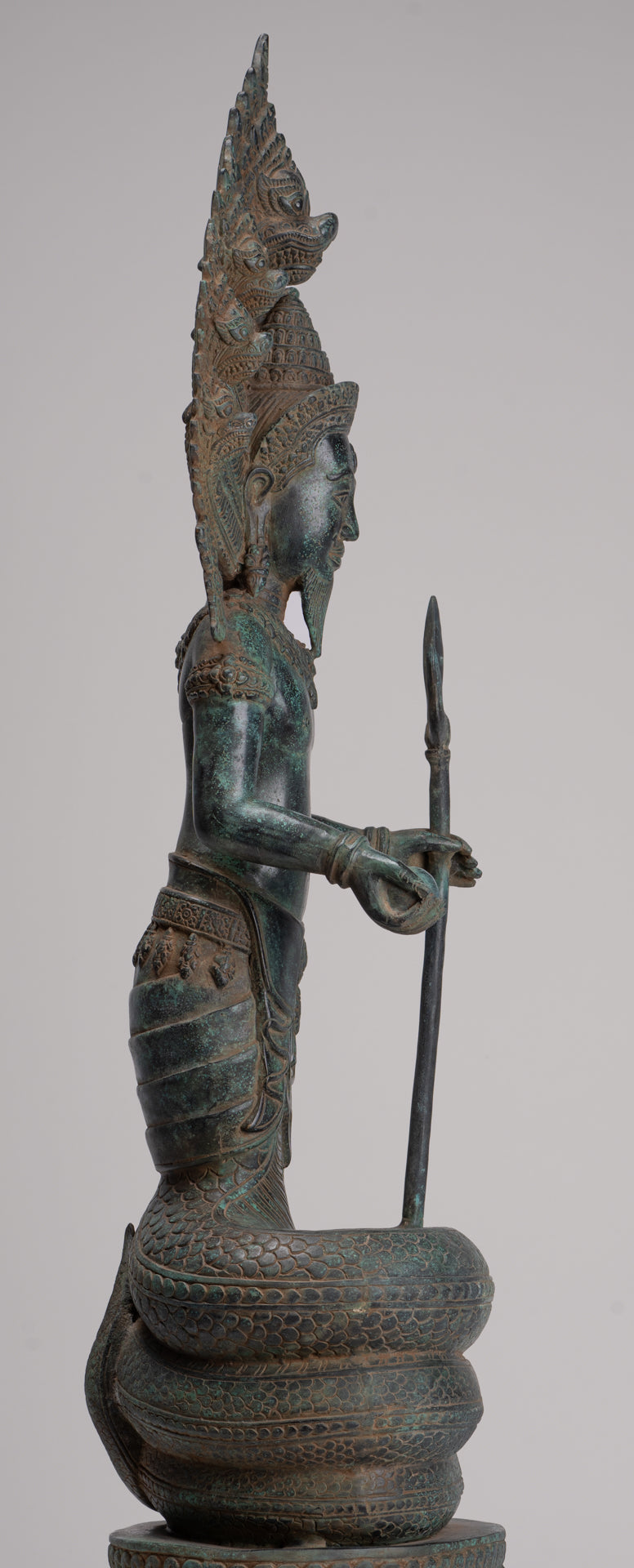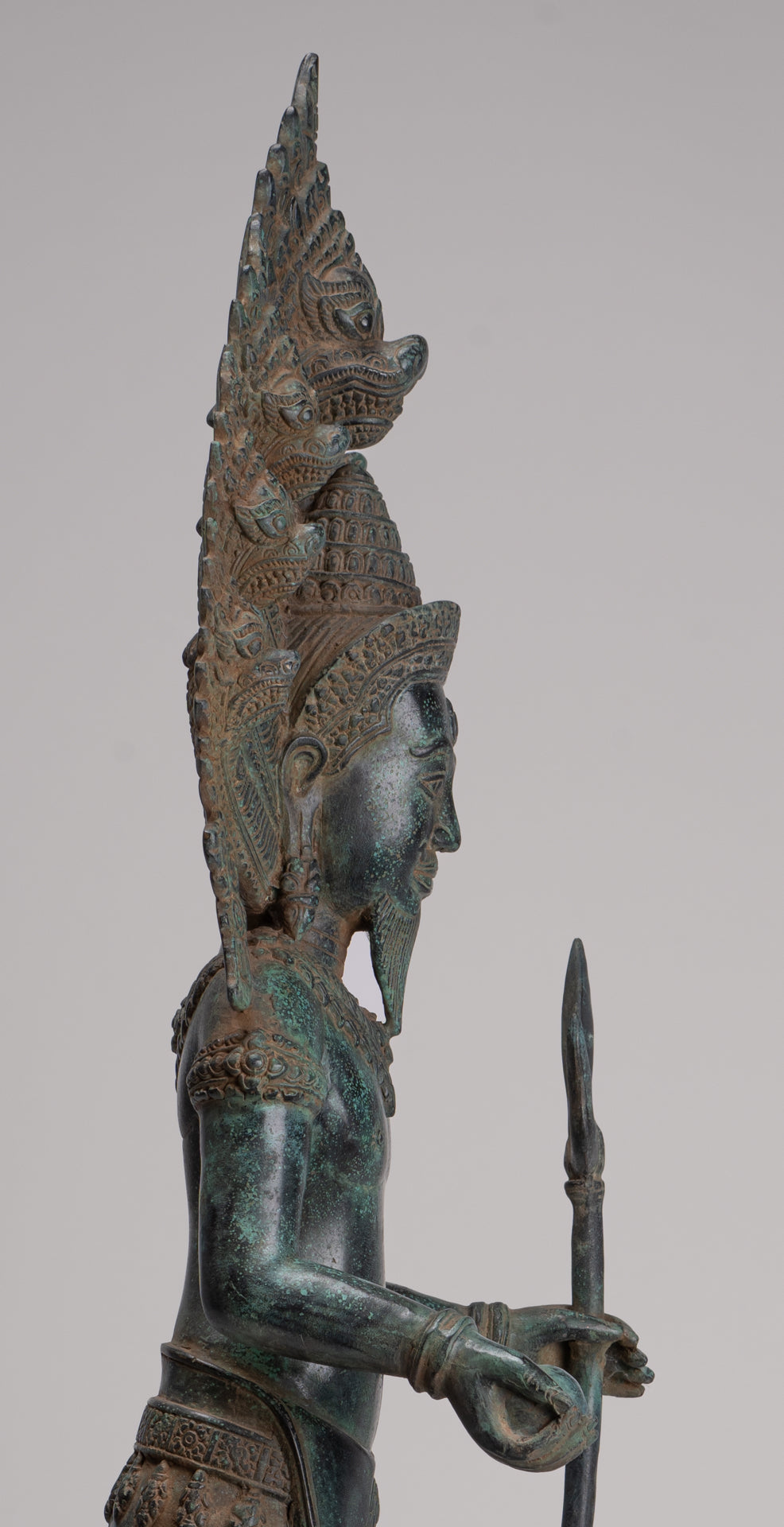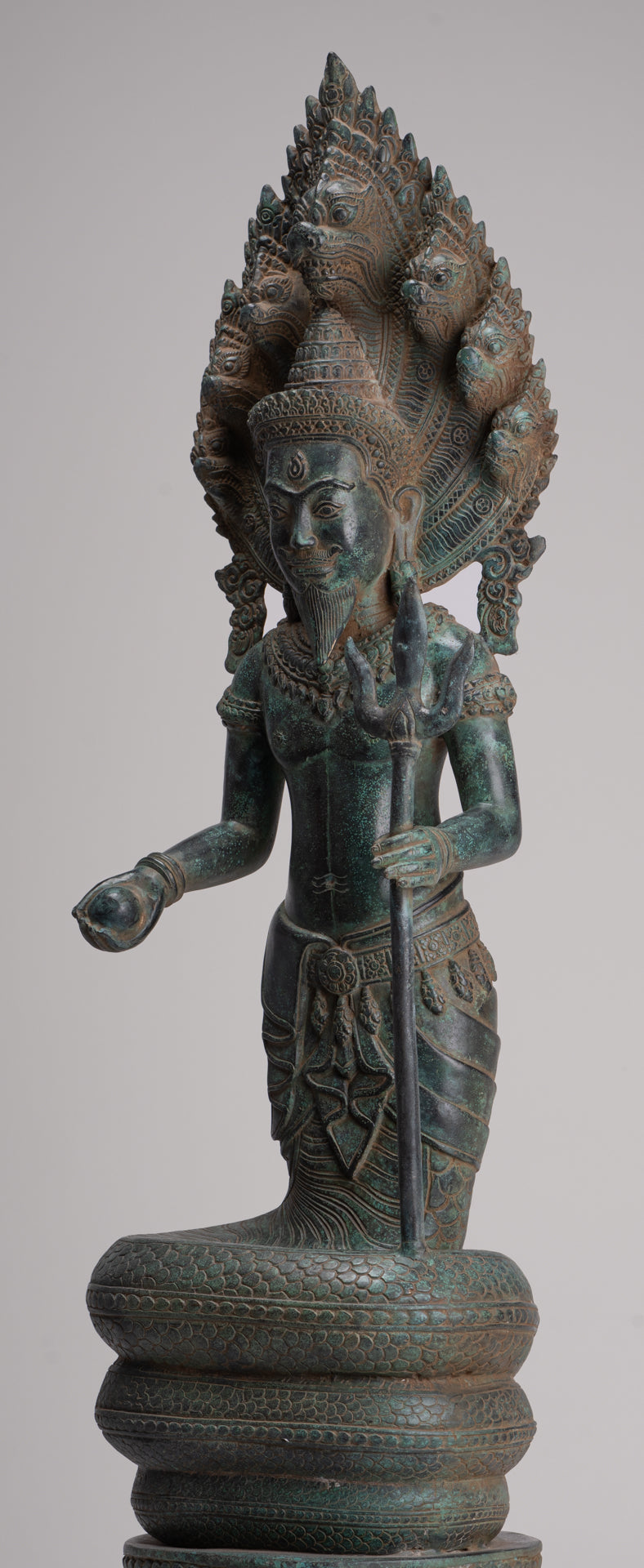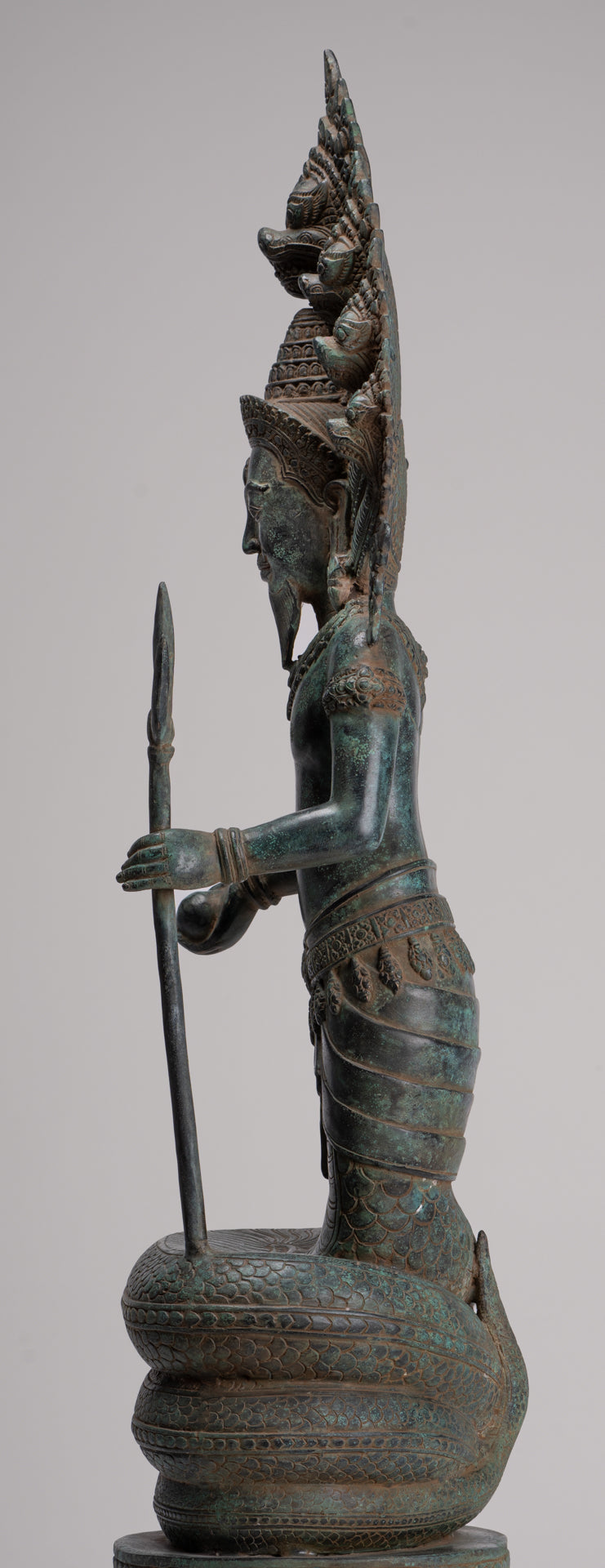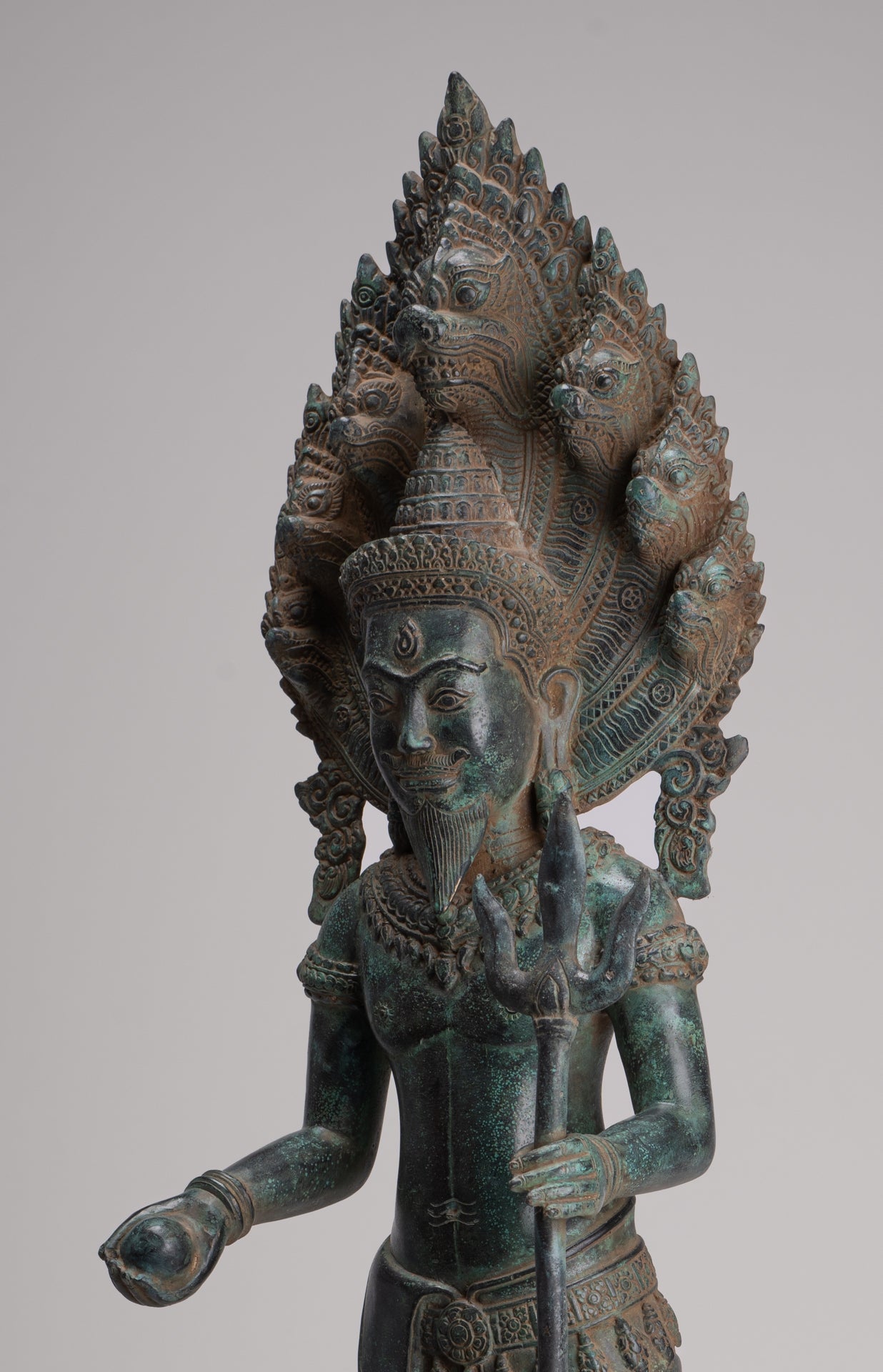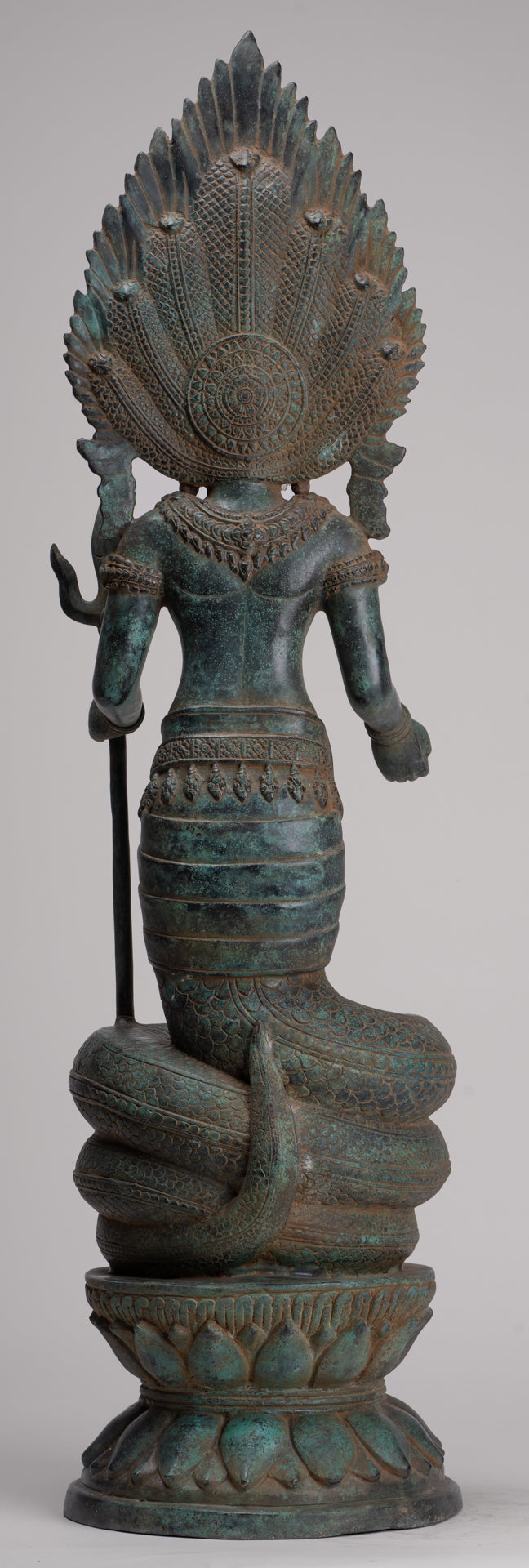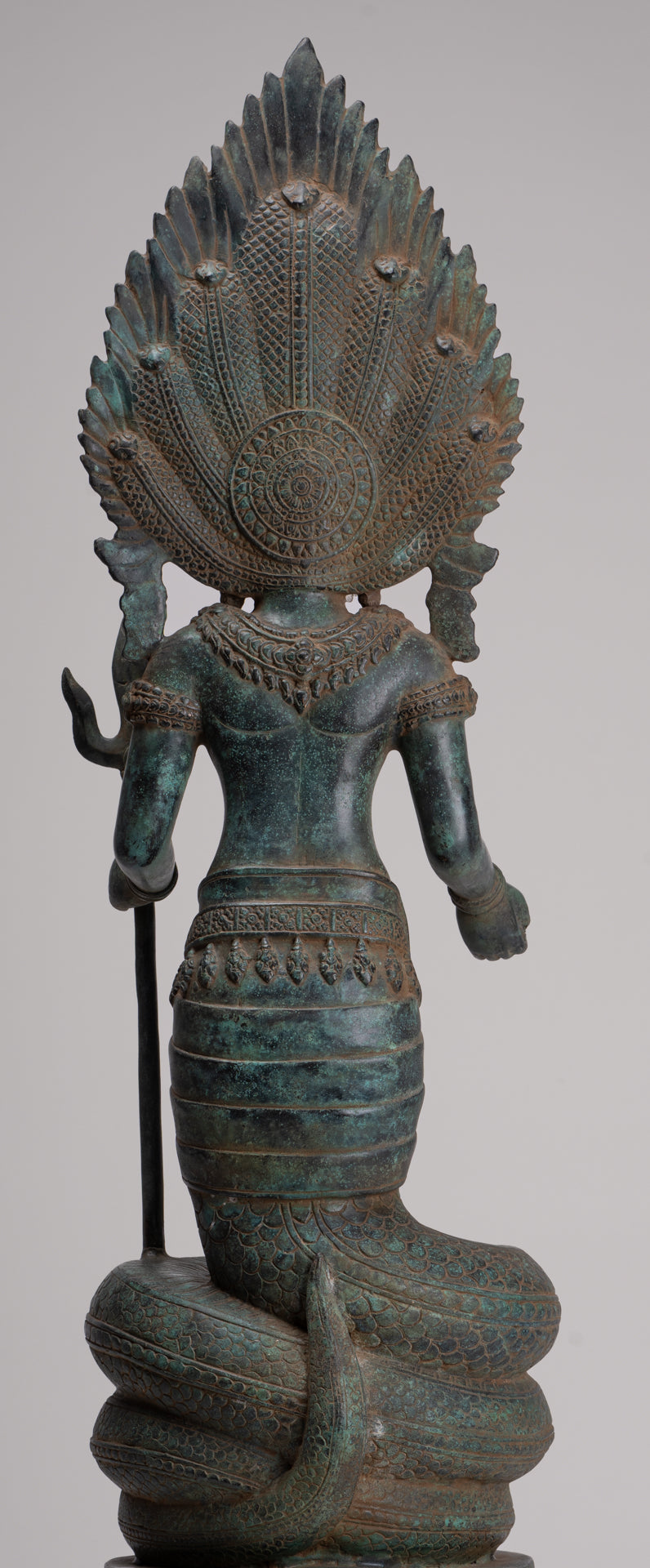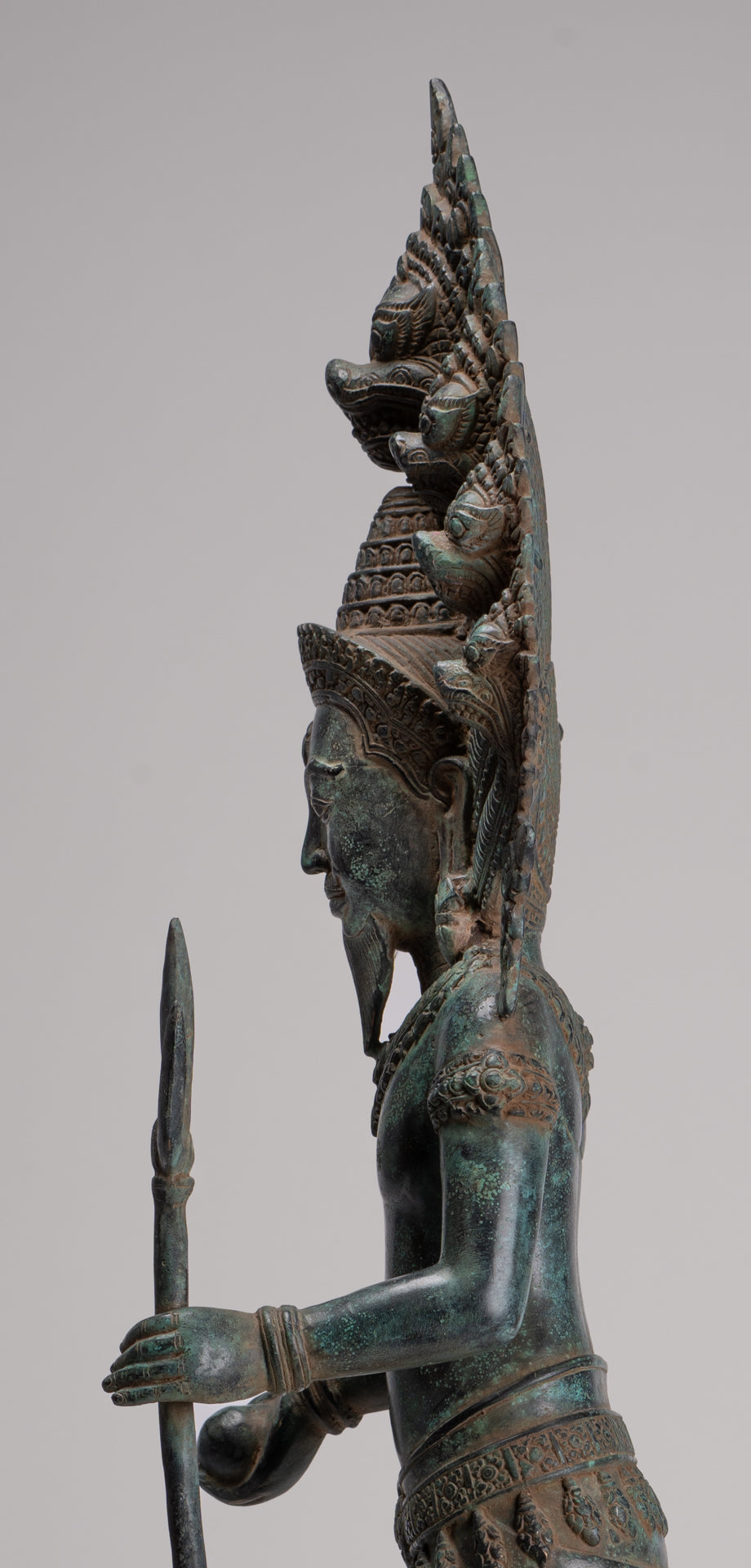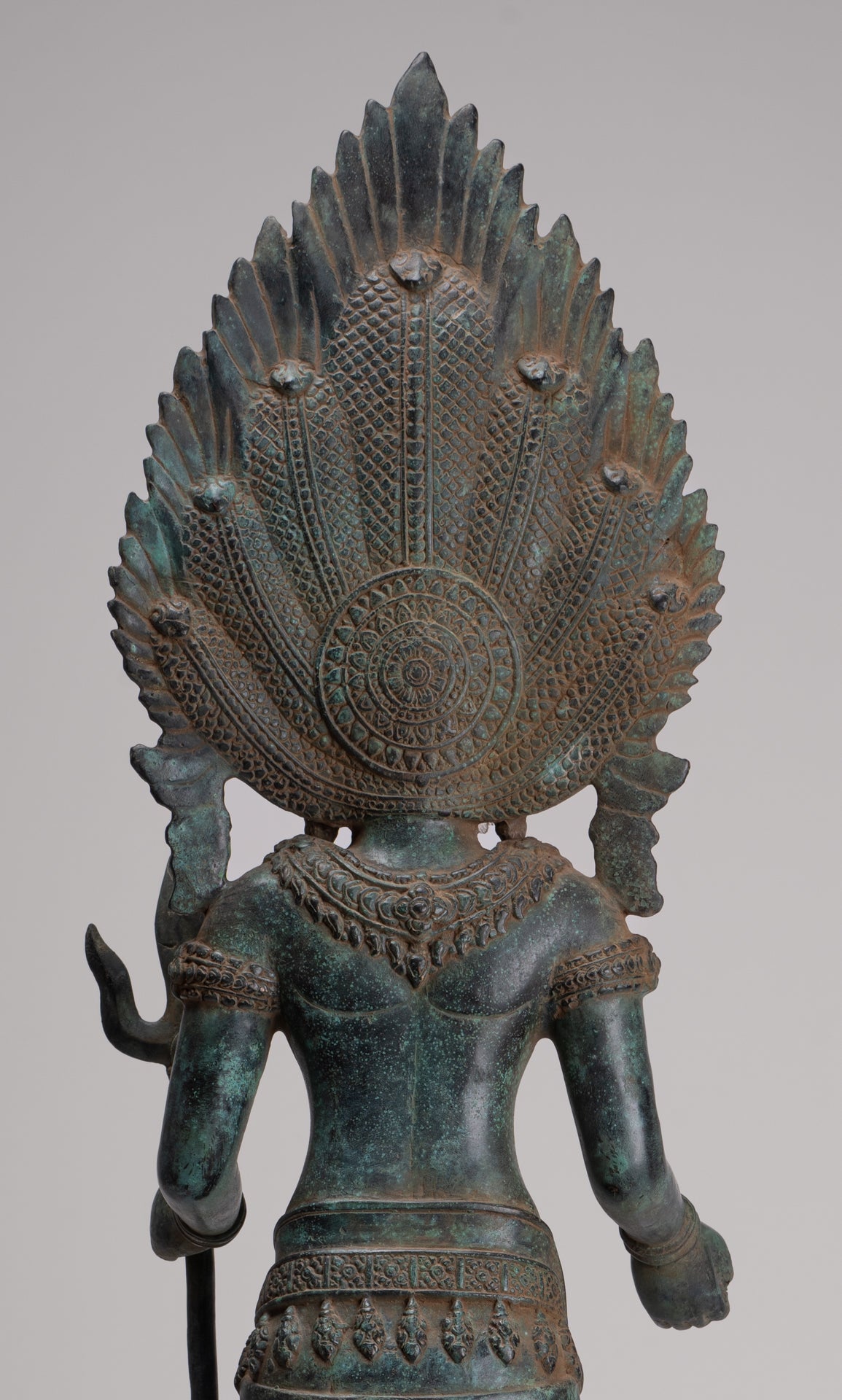-
Naga Statue - Antique Khmer Style Bronze Protective 'Kaundinya I' Consort of Queen Soma - Naga, Snake or Serpent Statue - 77cm/31"
Measures (Height) 77cm/31"
An antique Khmer style sculpture of Consort Kaundinya with protective seven-headed Naga, Snake or Serpent and Trident from HD Asian Art.
The history of Cambodia, known for its vast temples and vibrant culture, traces its roots to a fascinating legend involving two mythical figures: Kaundinya I, a Brahmin prince, and Queen Soma, a Naga princess. Their union is considered the foundation of the first Cambodian royal dynasty, giving rise to the ancient Khmer civilization.
The story of Kaundinya and Soma is not only a blend of myth and history but also a symbolic representation of the merging of foreign influences with local traditions, forming the unique identity of Cambodia.
Kaundinya I was consort to 'Mother of Naga' Queen Soma and here morphs into the three-tired coils of the Naga, with the flaring head of a giant Naga, the serpent King Muchalinda, rising behind protectively behind her.
The Naga protects both Kaundinya I and Queen Soma the ruler of the Kingdom of Funan and widely claimed as the first ruler of Cambodia (1st century). She was also the first female leader of Cambodia. He is also known as Liǔyè (Chinese) and Neang Neakii (Khmer). Together, both were the co-founders of the kingdom of Funan with the capital located at Vyadapura
As per the legends, an Indian merchant ship was attacked by the pirates led by Soma, daughter of the chieftain of the local Naga clan. The merchants led by Kaundinya fought back and fended off the attackers but the ship had been damaged and was beached for repairs.
The Indians were wary of a second attack but Princess Soma was impressed by Kaundinya's bravery and proposed marriage which was accepted. The union led to the foundation of the House that became the royal dynasty of Funan which would rule the region for many generations. Royal legitimacy was acquired through the female line in the kingdom. This also explains the reason why the serpent (Naga) became an important part of Khmer iconography as is seen thousand years later when this historic mystical union remained an important part of the court ceremonies at Angkor during the era of the Khmer Empire.
In the Buddhist culture the Naga or serpent and the Trident that Kaundinya I holds offers protection.
The casting of this piece is lovely as you can see in the fine details of the Naga. Each detail is rendered perfectly. The distinctive patina of the piece is also particularly delightful.
This traditional in appearance piece is sure to add protection to your home, office or sacred space.
SATISFACTION GUARANTEE - We have been offering SE Asian Art for many years and are proud of the reputation we have developed for fair and honest listings. However, if for any reason, whatsoever, you are unhappy with your purchase please just let us know and we will provide a full refund.
-
The majority of orders will be shipped with DHL. This is a secure, express and fully tracked service.
Items less than 2Kg we typically ship using Royal Mail.
Once we receive your order we try to ship all orders the same or next working day.
Large and/or fragile pieces requiring palletising, specialist crating and/or extra packaging may take a little longer. Palletised shipments will be delivered curbside.
All orders over 35 GBP will be shipped free of charge.

-
We genuinely hope that all purchases delight.
However, if they do not, regardless of reason, we will refund all orders upon receipt of the unwanted item. Just notify us within 14 days of receiving your order that you wish to make a return and send the piece back to us with 30 days of delivery.
A finely carved stone Buddha sculpture has a presence that very few art objects can match.
The weight of the stone, the softness of the carving, and the way light grazes its surface create an atmosphere of calm that transforms whatever space it occupies.


